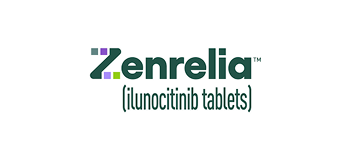Zeniquin
Prescription required.
You already have a

subscription.
You already have a

subscription in cart.
Your order may arrive in two packages. We ship non-Rx items without delay while the Rx approval is pending. You will receive two tracking numbers.
Prescription required.
You already have a

subscription.
You already have a

subscription in cart.
Your order may arrive in two packages. We ship non-Rx items without delay while the Rx approval is pending. You will receive two tracking numbers.


What is Zeniquin?
Zeniquin is a broad spectrum antibiotic used for the treatment of bacterial infections in dogs and cats, such as skin and soft-tissue infections and urinary tract infections due to organisms susceptible to marbofloxacin. The tablets are film-coated and easy for your pet to swallow. Zeniquin requires a prescription from your veterinarian and is sold by the tablet.
Suitable For:
Cats (over 12 months of age); Dogs (small and medium breeds over 8 months of age, large breeds over 12 months of age and giant breeds over 18 months of age)
Benefits:
- Has an excellent safety profile
- Once-a-day dosing
- Easy-to-swallow, film-coated tablets
How Does Zeniquin Work?
Zeniquin is a fluoroquinolone antibiotic that works by inhibiting bacterial DNA replication.
Cautions:
IMPORTANT SAFETY INFORMATION: ZENIQUIN is not recommended for use in immature cats or dogs during the rapid growth phase, or in cats or dogs known to be hypersensitive to fluoroquinolones. People with a history of hypersensitivity to fluoroquinolones should avoid this product.
Brand Name:
Zeniquin (Zoetis)
Generic Name:
marbofloxacin
What is the most important information I should know about Zeniquin?
Zeniquin is a prescription medication FDA-approved for veterinary use in dogs and cats. Zeniquin is available as 25 mg, 50 mg, and 100 mg film-coated scored tablets. Always follow the dosage instructions provided by your veterinarian. Do not give Zeniquin to any pet other than the pet for whom it was prescribed. Zeniquin is not for use in pets allergic to it or other fluoroquinolone antibiotic drugs. Zeniquin should not be used in cats younger than 12 months of age, or dogs during their rapid growth phase which can vary from 8 to 18 months based on the breed. Zeniquin may affect the retina of cats.
What should I discuss with my veterinarian before giving Zeniquin to my pet?
Tell your veterinarian if your pet has seizures or other central nervous system (CNS) disorders, or if your pet is breeding, pregnant, or lactating.
How should Zeniquin be given?
Give Zeniquin exactly as directed by your veterinarian. Give all of the medication your veterinarian has prescribed. Symptoms may start to improve before the infection is completely treated. The usual dose of Zeniquin for dogs and cats is 1.25 mg per pound given once a day, but the dosage may be increased to 2.5 mg per pound. For the treatment of skin and soft tissue infections, Zeniquin tablets should be given for 2-3 days beyond the cessation of clinical signs for a maximum of 30 days. For the treatment of urinary tract infections, Zeniquin tablets should be administered for at least 10 days. If no improvement is noted within 5 days, the diagnosis should be re-evaluated and a different course of therapy considered. If you do not understand the directions, ask your pharmacist or veterinarian to explain them to you.
What are the potential side effects of Zeniquin?
Stop giving the medication and seek emergency veterinary medical attention if your pet experiences an allergic reaction (difficulty breathing; closing of the throat; swelling of the lips, tongue or face; or hives). Other less serious side effects may also occur. Continue to give the medication and talk to your veterinarian if your pet experiences loss of appetite, vomiting, diarrhea, dizziness, or drowsiness. Side effects other than those listed may occur. Talk to your veterinarian about any side effect that seems unusual or bothersome to your pet.
What happens if I miss giving a dose of Zeniquin?
Give the missed dose of Zeniquin as soon as you remember. However, if it is almost time for the next dose, skip the dose missed and give only the next regularly scheduled dose. Do not give a double dose of the medication.
What happens if I overdose my pet on Zeniquin?
Seek emergency veterinary medical treatment. Symptoms of overdose may include loss of appetite, vomiting, dehydration, excessive salivation, tremors, reddened skin, or facial swelling.
What should I avoid while giving Zeniquin to my pet?
Do not give Zeniquin to pets allergic to it or other fluoroquinolone antibiotics. Do not give Zeniquin within 2 hours of administering Carafate (sucralfate), or other antacids or foods and supplements containing iron, aluminum, calcium, magnesium, and zinc.
What other drugs will affect Zeniquin?
Drugs other than those listed may also interact with Zeniquin. Talk to your veterinarian or pharmacist before giving any other prescription or over-the-counter medications.
How should Zeniquin be stored?
Store Zeniquin below 86°F (30°C) away from moisture and heat. Keep this medication away from children and pets.
Where can I get more information about Zeniquin?
Your pharmacist has additional information about Zeniquin written for health professionals that you may read.


Zeniquin Directions:
- Zeniquin is a prescription broad-spectrum oral antibiotic used in dogs and cats for the treatment of bacterial infections such as skin and soft-tissue infections and urinary tract infections due to susceptible organisms.
- Give this medication exactly as directed by your veterinarian.
Zeniquin should not be used in cats younger than 12 months of age or dogs during their rapid growth phase, which can vary from 8-18 months based on the breed (small and medium breeds up to 8 months of age, large breeds up to 12 months of age, and giant breeds up to 18 months of age).
Zeniquin Dosage:
| Weight | Dosage |
|---|---|
| All weights | The usual dose 1.25 mg/lb of pet's body weight given once a day, but the dosage may be increased to 2.5 mg/lb of pet's body weight. For treatment of skin and soft tissue infections, give for 2-3 days after symptoms are gone, for a maximum of 30 days. For treatment of urinary tract infections, give for at least 10 days. However, if there is no improvement after 5 days your pet should be reevaluated. |
| Weight | Dosage |
|---|---|
| All weights | The usual dose 1.25 mg/lb of pet's body weight given once a day, but the dosage may be increased to 2.5 mg/lb of pet's body weight. For treatment of skin and soft tissue infections, give for 2-3 days after symptoms are gone, for a maximum of 30 days. For treatment of urinary tract infections, give for at least 10 days. However, if there is no improvement after 5 days your pet should be reevaluated. |
| Horses | Do not use! |
|---|
Storage:
Store Zeniquin below 86F (30C), away from moisture and heat.


Zeniquin Ingredients:
| Active Ingredient (per tablet) | Amount |
|---|---|
| Marbofloxacin | 25 mg |
| Active Ingredient (per tablet) | Amount |
|---|---|
| Marbofloxacin | 50 mg |
| Active Ingredient (per tablet) | Amount |
|---|---|
| Marbofloxacin | 100 mg |




















































